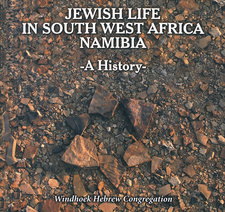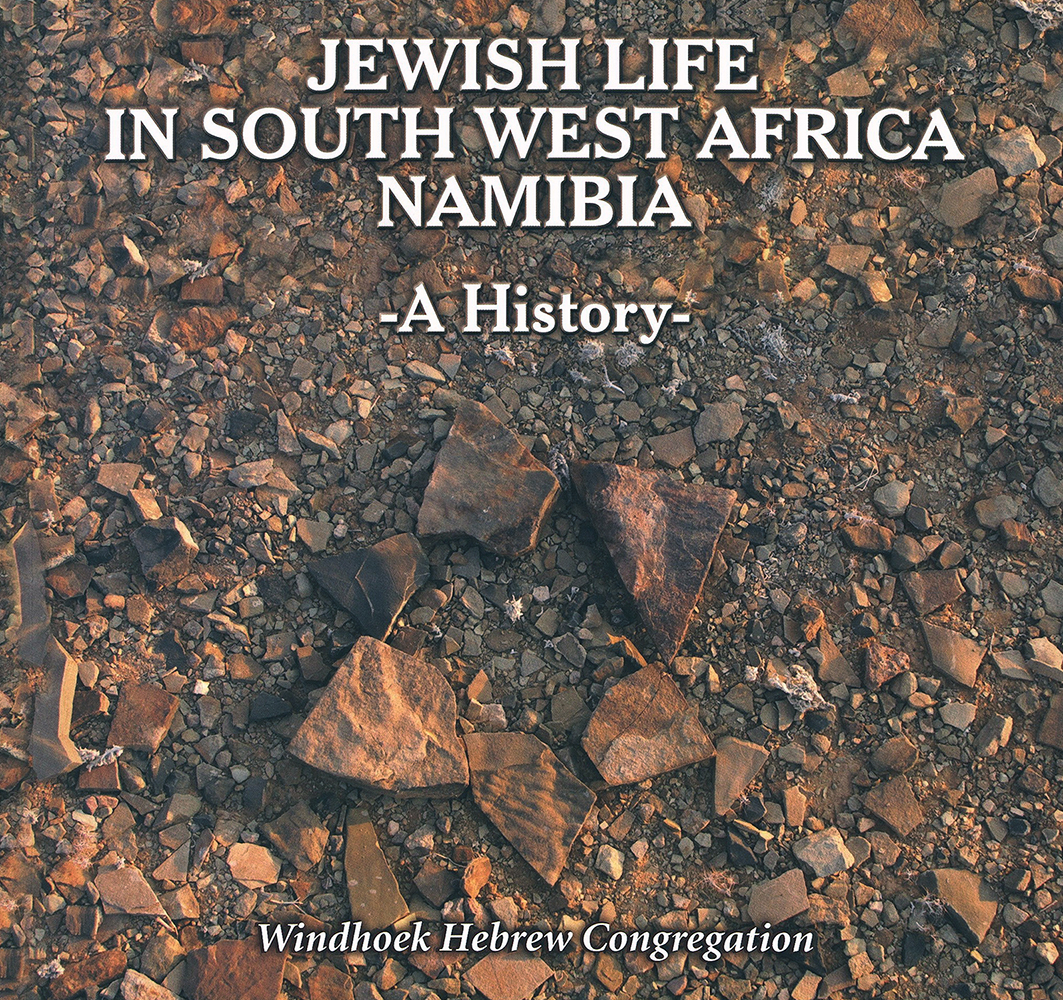Biographies of Jews in South West Africa / Namibia published by Windhoek Hebrew Congregation
The Windhoek Hebrew Congregation has published a collection of biographies of Jews in South West Africa / Namibia, which was long overdue and adds interesting details to the country’s contemporary history. Titled Jewish Life in South West Africa/ Namibia: A History, this account of Jewish contributions to Namibia has been long in the making by a ‘Book Committee’.
The committee was appointed in 2005 by the Executive Committee of the Windhoek Hebrew Congregation. Lavishly illustrated it is a definitive account of the Namibian Jewish community from German colonial times to Namibian independence. Apart from a chronological account, this important book provides detailed lists of names of Jewish people who lived or still today live in Namibia’s larger towns and a list of Jews buried in various Jewish sections of municipal cemeteries. Started by June Horwitz (née Pieters) as a recording of Jewish life in then South West Africa some 70 years ago and continued by her daughter June, the Book Committee continued research and data collection resulting in a voluminous 445 page book. “We have endeavoured to present as true as possible an account of a very special community who flourished in a far off country [Namibia] and left an indelible mark in the history of the country,” writes Nahum Gorelick. The book contains sections on the specific contribution of Jews to economic, cultural and educational developments in SWA/ Namibia. Names of prominent Jewish families like Pupkewitz, Cohen, Gorelick, Lentin, Kiwi or Bloch are still remembered in Namibia and in many cases the offspring of immigrants from two or three generations ago play important roles in business, the legal and academic worlds. Tradesmen Aaron and Elias de Pass – two brothers – are recorded as the first Jewish people to have entered Namibia in the 1850s in search of trade and supply opportunities between Cape Town and Angra Pequena (Lüderitz today). This sets the tone for Jewish Life in South West Africa / Namibia. A History., which in a way doubles as an economic history of Namibia. The publishers explain the three major immigration waves: pogroms against Jews in the Russian Empire, diamond discovery near Lüderitz in 1908, the onset of communism in Russia 1917, World War I, the Nazi regime of Adolf Hitler from 1933 in Germany and seeking new opportunities after 1945 outside a war-ravaged Europe, divided into a communist east and the capitalist west. Although the many pogroms against Jewish people are well recorded by historians, Jewish Life in South West Africa/Namibia A History is not a political book. Finger pointing is absent; its consequent neutral tone compared to other contemporary history accounts on Namibia is refreshing when reading this book. It however makes for sombre reading in sections, especially the matter-of-factaccounts for example of Dr Werner Kiwi, who left Nazi Germany in 1934 for South Africa and started a boarding house for elderly Jewish couples – including his parents – who could escape the Nazi’s clutches. Kiwi took part in WWII in North Africa under the British flag against General Rommel’s North Africa Corps. Kiwi moved to Windhoek with his wife Ruth after the war in 1945, opened a medical practice, founded the blood transfusion service – still active today – and played the violin in the local symphony orchestra. The municipality requested him to open a medical practice at the Old Location, which he did. Ruth Kiwi became the heart and soul of the Red Cross in Namibia until 1986. Though this is surprisingly not mentioned in this book, Ruth provided para-medical services to the wounded people of the Old Location uprising of 10 December 1959, who were battered and shot by apartheid police. The Kiwis emigrated – yet again in their lives – to the USA in 1986 together with Ruth’s sister. The above account is just one of several examples in this book of how the biographies of many Jewish community members of Namibia had their fates determined by major world events – often losing loved ones at the hands of repressive regimes. The book in a sense is a proud account – and it has good reason to be so – about the many economic, cultural, artistic and academic contributions of this small and now diminishing community, which has a small synagogue or ‘Schul’ in Windhoek’s city centre, tucked away behind high trees and walls. Equally remarkable, the reader notes that members of the Jewish community all these years purposefully abstained from active politics, carefully steering clear of situations that could have brought them into the political limelight. Jewish Life in South West Africa / Namibia. A History is finally rounded off with a chapter one could call ‘loose ends’: Jewish graves, diverse articles on topics of Jewish interest published over the decades, are included. A glossary and different indexes help to access the book’s wealth of facts and knowledge. Jewish Life in South West Africa/ Namibia – A History is an important book as it adds another important stone to the historical mosaic of Namibia’s past.
Empfehlungen
Jewish Life in South West Africa / Namibia: A History
Full of most interesting biographies, the book Jewish Life in South West Africa / Namibia: A History, was published by the Windhoek Hebrew Congregation after many years of compliation.


